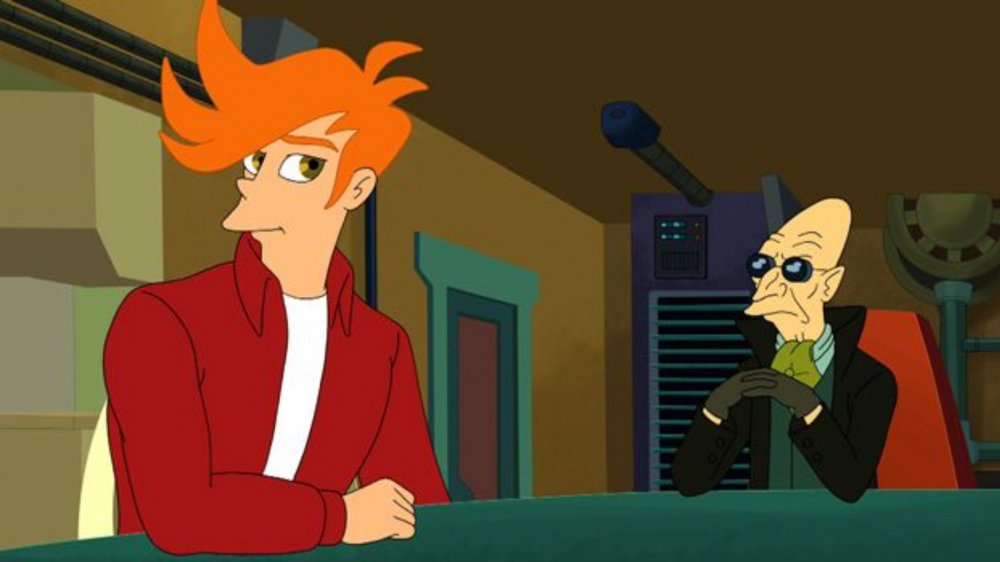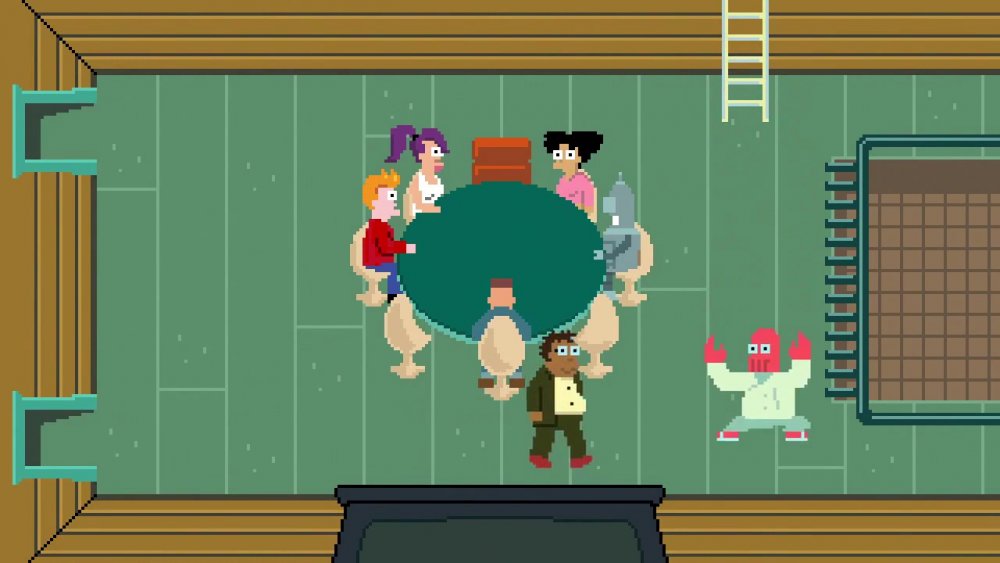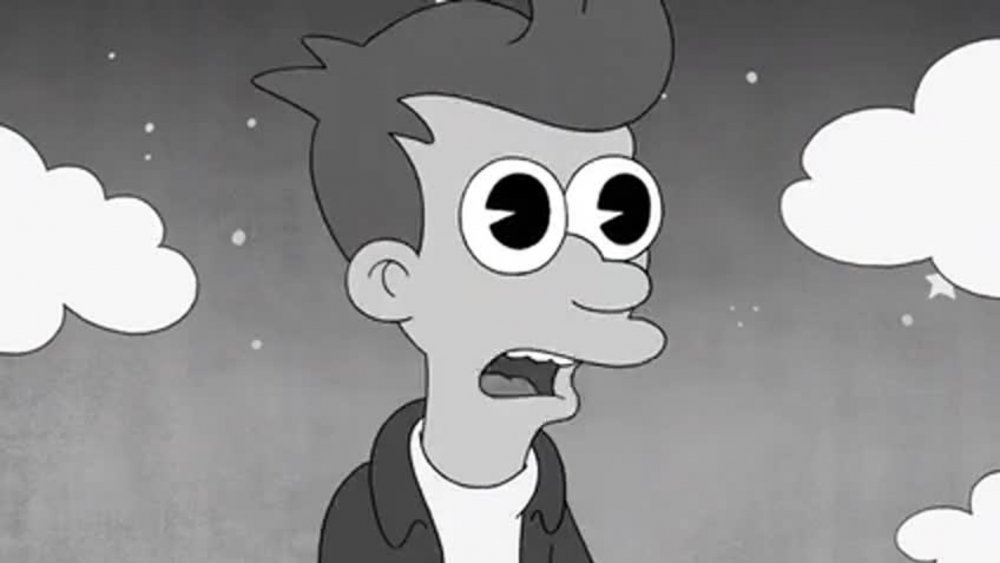The Most Underrated Episode Of Futurama
Despite a premature cancellation courtesy of Fox, Futurama's Planet Express crew stuck around for an impressive 140 episodes with a little help from Comedy Central. As a result, the animated series is full of standout outings, including the unforgettable "Jurassic Bark" and the melancholy "The Late Philip J. Fry." While those episodes are classics, the most underrated episode of Futurama is one that daringly played with the show's form and set canon aside to delve into the limitations of different types of animation.
When it came time to close out season 6, the Futurama writers opted to break form and serve up an anthology episode entitled "Reincarnation." The season 6 finale wasn't the first episode of the series to use a three-story anthology format to break out of the show's planet-hopping premise, but "Reincarnation" sets itself apart thanks to its commitment to showcasing three disparate animation styles. The episode kicks off with an homage to Max Fleischer's black and white classics like Betty Boop and Popeye, before segueing into an 8-bit video game style story featuring Farnsworth trying to solve the mysteries of the universe. Finally, "Reincarnation" ends with a dazzling send up of anime, pictured above, that finds the Pizza Express crew attempting to perform a peace dance to calm an enraged alien race without mouths.
Each segment is brilliant in its own right, and together, they're as much a commentary on the inherent limitations that come with each different style of animation as they are an excuse to present clever reimaginings of Fry, Bender, and Leela.
Futurama's commitment to using each animation style as a story device is impressive
It's all too easy for anthology episodes to devolve into gimmicks, but Futurama so fully commits to telling a story within the bounds of its chosen animation style that "Reincarnation" never feels lazy — it's quite the opposite, in fact. The first segment, "Colorama," is rooted in Fleischer's familiar black and white style: the characters have doe eyes and they're in a constant state of motion. The story itself focuses on Fry trying to break off a chunk of diamond from a comet to present to Leela as an engagement ring, and it culminates with him inadvertently creating an entirely new color. Of course, the viewers can't see the color, because the segment is animated in black and white.
Color playing such a prominent role in a story where the only colors are varying shades of black, white, and gray is all part of the joke, and it's a theme that carries through the next two segments. For example, in the second part, when Farnsworth discovers the secret to the universe, the characters are blown away — but because of the low resolution of 8-bit animation (as pictured above), the viewer only sees a black square. Finally, in the anime-themed segment, when Zoidberg does his peace dance, a still image of him is moved around the screen, with motion lines. It's absurd, nerdy, and utterly perfect, especially for animation devotees.
"Reincarnation" feels like a commentary on the everlasting nature of Futurama
Futurama spent most of its time on air fighting off the threat of cancellation. In a way, each season was as much a rebirth as it was a stay of execution. It seems fitting, then, that season 6 ends with the Planet Express crew being reimagined in three different styles of animation, presented in a manner that suggests the show exists in infinite permutations. "Reincarnation" even opens with a voiceover from a god who says as much: "A wise man once said that nothing really dies, it just comes back in a new form. Then he died. So next time you see a lowly salamander, think twice before you step on it. It might be you. Stand by for reincarnation."
The idea that Futurama not only lives on, but maintains its wit and pop culture savvy in every reality, is comforting. It's also a reminder of the casual brilliance of a show that made layering comedy, sight gags, and genuine emotion look easy, on the regular. While the anthology setup of "Reincarnation" is a tried and true format, not just for Futurama but also for other animated series like The Simpsons and Bob's Burgers, the show used it in such an unexpected and entertaining way that it created an unforgettable episode, that stands as the most underrated outing in a series full of hidden gems.


